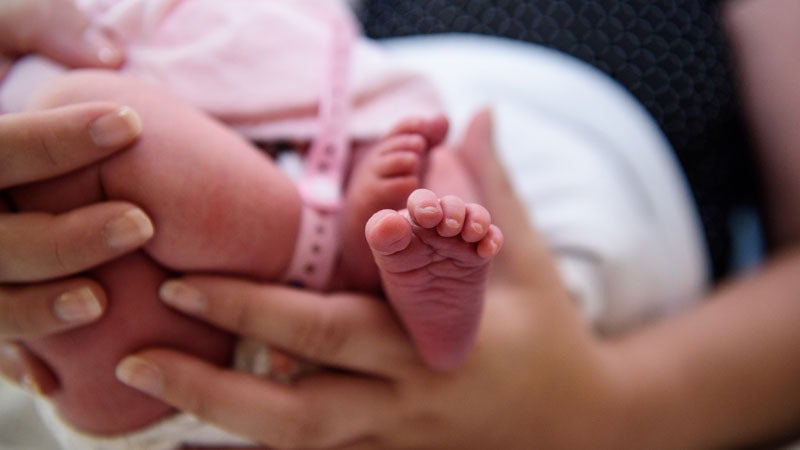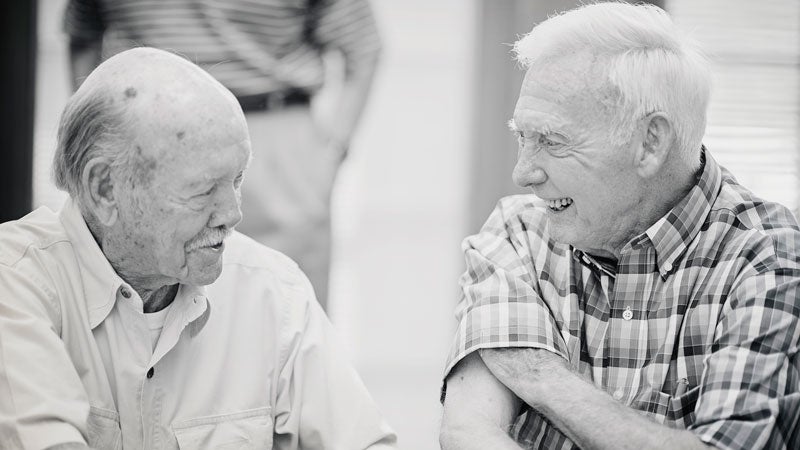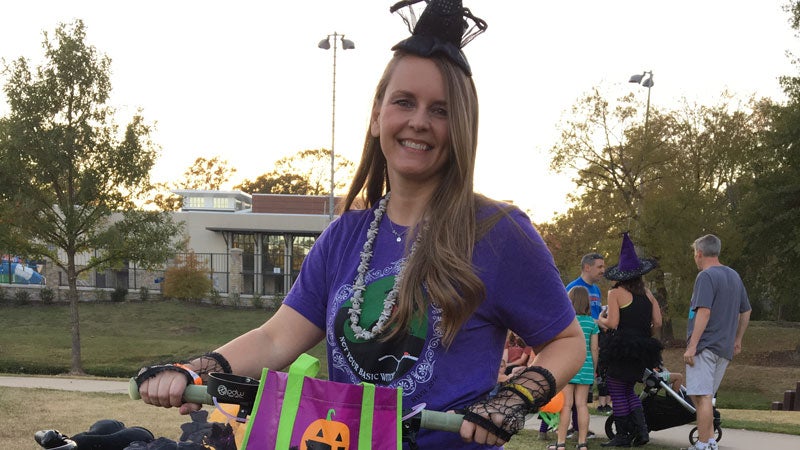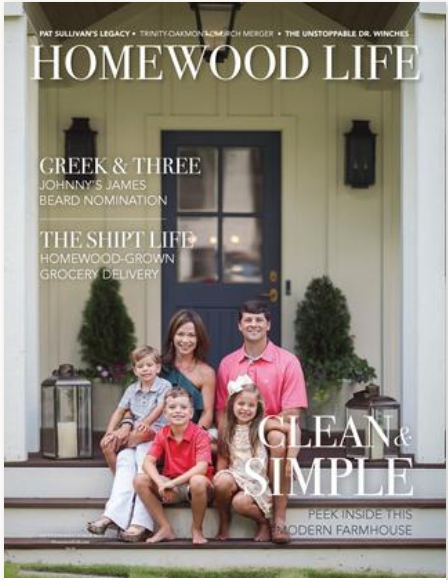When you’re a pediatric nurse, it’s hard to not bring work home or let it affect your day-to-day life. Especially when cancer is involved. For nine years, Catherine White cared for thousands of kids fighting a variety of blood cancers at Children’s of Alabama who were waiting to be matched with a bone marrow donor for a life-saving transplant. But surprisingly (at least to those of us who aren’t clinical), the bone marrow isn’t really what patients need. It’s what’s inside the bone marrow that matters: stem cells. Stem cells reside in adult bone marrow and fat, as well as other components of the body including the umbilical cord. That’s why, when Catherine became pregnant in 2010 with her first child, she began researching local options for cord blood donation.
“I knew how precious cord blood could be to another person in need, and I couldn’t imagine just letting it go to waste,” Catherine says. “Knowing that a child needs a transplant and that no match can be found for them is absolutely heartbreaking.”
To Catherine’s dismay, her investigation into cord blood donation options revealed that the closest bank was in Florida. To make things even more inconvenient, a successful donation from Catherine meant “mountains of paperwork” and required “special packaging within a cord blood retrieval kit.” But to Catherine, going through those steps were just as important as giving birth to a healthy baby.
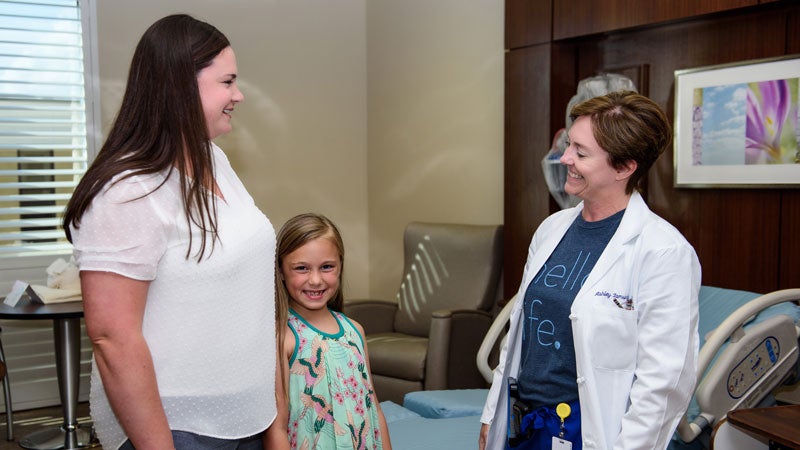
Catherine White helped bring blood cord donation to Brookwood Medical Center when she was pregnant with her daughter, pictured here with Brookwood’s Dr. Ashley Tamucci.
When a mother chooses to donate her umbilical cord blood after delivery, she is potentially saving the life of someone with a life-threatening disease. Because of its rich stem cell supply, cord blood has the ability to treat blood cancers like leukemia and lymphoma. Families can pay to have their cord blood privately banked, ensuring their child has more medical options later in life if needed. But as of the time of this article’s publication, only one hospital in the Birmingham area offers free cord blood donation, Brookwood Baptist Medical Center in Homewood.
Actually, it was Catherine’s determination and passion that inspired her OBGYN, Brookwood’s Dr. Ashley Tamucci, to bring cord blood donation to the hospital. After four years of running into dead ends, Dr. Tamucci finally discovered that LIFESouth, the company that manages Brookwood’s blood transfusions, offered cord blood donation services through the arm of their company called LifeCord. And since LIFESouth is located on Brookwood’s campus, this was the perfect solution for retrievals 24 hours a day, seven days a week.
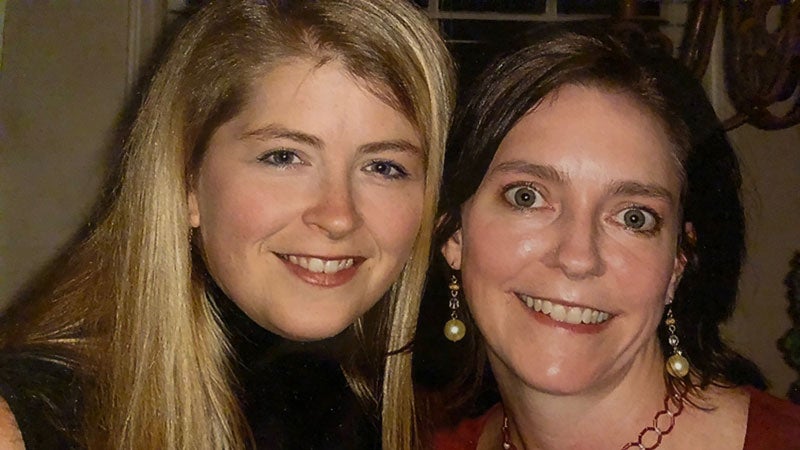
Dr. Tamucci, right, with her friend Chappell
But as Dr. Tamucci was finalizing agreements with LifeCord, tragedy struck. Her life-long best friend, Chappell White Anderson, received a heartbreaking diagnosis: lymphoma — one of the cancers that benefits from cord blood donations. This only fueled Dr. Tamucci’s fire to launch the program as soon as physically possible. Three months after Chappell’s diagnosis, in the fall of 2014, Brookwood began officially accepting donations. Chappell shared the excitement of the launch, but as she was waiting to be matched with a donor, she lost her battle a short month later at only 46 years old.
“Ironically, I had no personal interest in this at first,” Dr. Tamucci admits, “But now, in honor of Chap, I want to do everything I can to educate women, because I don’t think enough are aware of what exactly cord blood donation is and why it’s so important. This is truly a priceless resource that can help people fighting awful blood cancers.”
People like Homewood resident Howard King, for example, who in 1998 at age 44, learned his flu-like symptoms were actually manifesting into something much worse: acute myeloid leukemia, a blood cancer that can progress quickly if not attended to immediately. His doctors promptly started him on chemotherapy, but his body did not respond to the treatment. Only a bone marrow transplant would keep him alive.
Because only 30 percent of patients suffering from blood diseases find a donor from their immediate family (according to the US Department of Health and Human Sciences), it was nothing short of a miracle when not one but two of Howard’s four siblings were perfect matches and able to donate. Because Nancy (King) Ferren was the younger of the two siblings who matched, doctors took some of her marrow and gave to her brother. The whole process from diagnosis to transplant took about five months and after one year, Howard was completely cured.
Nancy, who has a nursing background, admits she hasn’t researched cord blood donation enough to officially advocate for it. “I’ll be completely honest. I haven’t read a lot about [cord blood donation],” Nancy confesses. “But, I will acknowledge that the advances we’ve made in medicine now are crazy. We’ve gone from complete bone marrow transplants to stem cell transplants to cord blood donation. It’s wild!”
To this day, Nancy remains on the bone marrow registry and says she would donate 100 times if she could. Her only regret is that she cannot help everyone. Still, as a Caucasian woman, her bone marrow would never match with the two groups who are least likely to find a suitable match: African Americans and Latinos.
According to BeTheMatch.com, only 11 percent of its 16 million donors on the bone marrow registry identify as Latino; only 5 percent identify as black or African American. For this and numerous other reasons, Nancy says, “There’s no reason why everyone shouldn’t at least look into [joining the bone marrow registry].”
Sarah Aultman, an OBGYN at Brookwood who lives in the heart of Homewood, has similar thoughts about cord blood donation: “My question is, ‘Why wouldn’t you do it?’”
To Dr. Aultman, educating the community about this natural, priceless resource is crucial. Of course, she encourages all her patients to donate, but her passion has also driven her to reach out to her peers in all local hospitals, including the competitors, to hopefully bring about a cord blood donation program at each of these facilities.
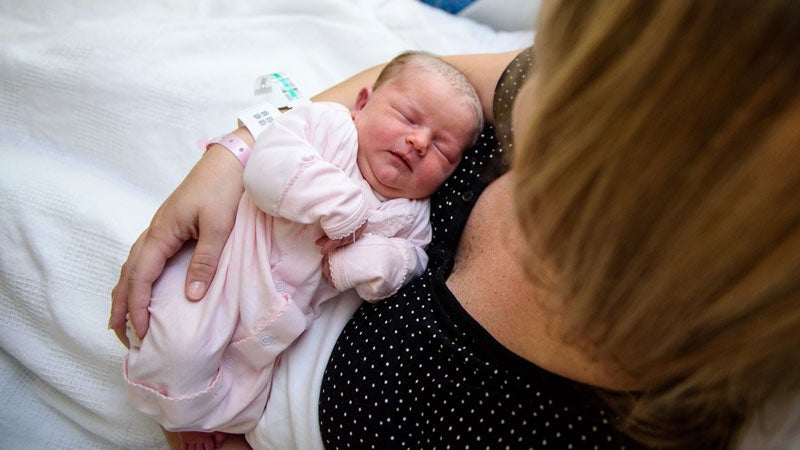 “I think the general population doesn’t know that cord blood donation is effortless, free, can treat cancer and can be used in place of bone marrow transplants,” Dr. Aultman states plainly. “I’m confident that more families would be excited to donate if they knew it was a possibility and that it doesn’t affect the birth experience in any way. It’s a non-painful way to help ensure that people in need of life-saving transplants can find a match.
“I think the general population doesn’t know that cord blood donation is effortless, free, can treat cancer and can be used in place of bone marrow transplants,” Dr. Aultman states plainly. “I’m confident that more families would be excited to donate if they knew it was a possibility and that it doesn’t affect the birth experience in any way. It’s a non-painful way to help ensure that people in need of life-saving transplants can find a match.
It’s been eight years since Dr. Tamucci and Catherine set out on their accidental journey together at Brookwood, but Catherine still remembers it like it was yesterday.
“I will never forget when my husband handed the box [with the donation] to the courier and said, ‘Be very careful with this; it’s going to save someone’s life.’ All this time I thought it only mattered to me, and I couldn’t have been more proud,” Catherine recalls. “I am so incredibly thankful that Dr. Tamucci saw my passion, and worked so hard to make it easy for countless families in the future to choose to donate precious, life saving cord blood.”
July is National Cord Blood Awareness Month. To learn more about cord blood donation, visit lifecord.org.
Editor’s Note: Writer Amy Ferguson is a marketing manager at Brookwood Baptist Health. Upon learning about cord blood donation, she was inspired to use her voice to bring awareness to its life-saving abilities.
5 Things You (Maybe) Didn’t Know About Cord Blood
- More than 80 diseases can be treated with cord blood, including cancer, blood disorders, immune system disorders and genetic diseases.
- Patients are more likely to find a cord blood match than a bone marrow match.
- Less than 1 percent of cord blood in the United States is collected for transplants. It’s simply discarded.
- African-American or black patients only have 76 percent chance of finding a match on the registry. More minority cord blood donors will help increases these odds.
- 55 percent of women would have donated their cord blood if they knew it was an option.
Source: LifeCord | Cord Blood

